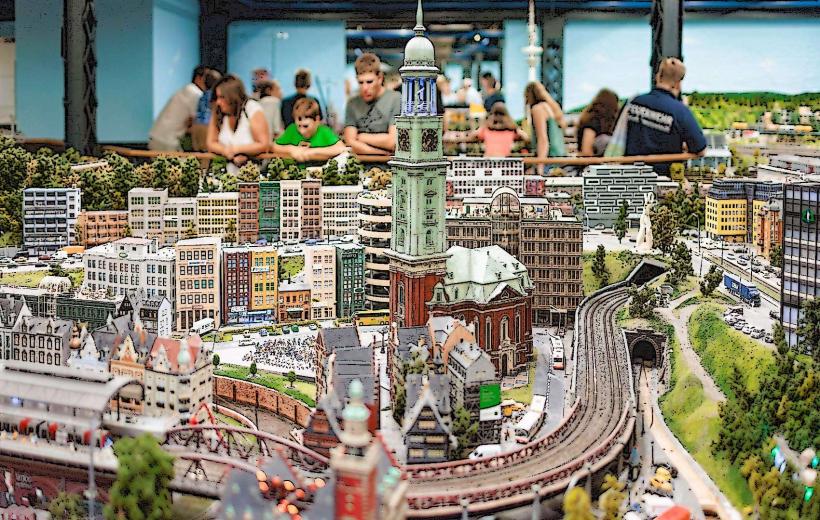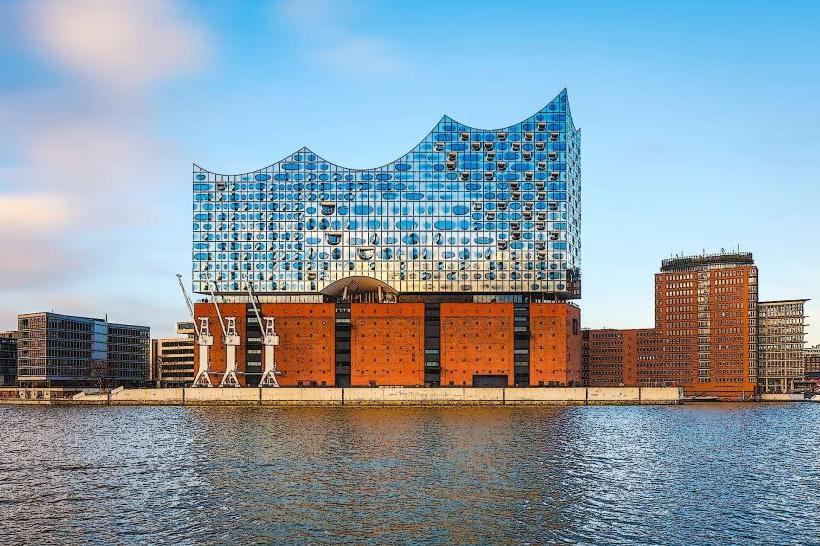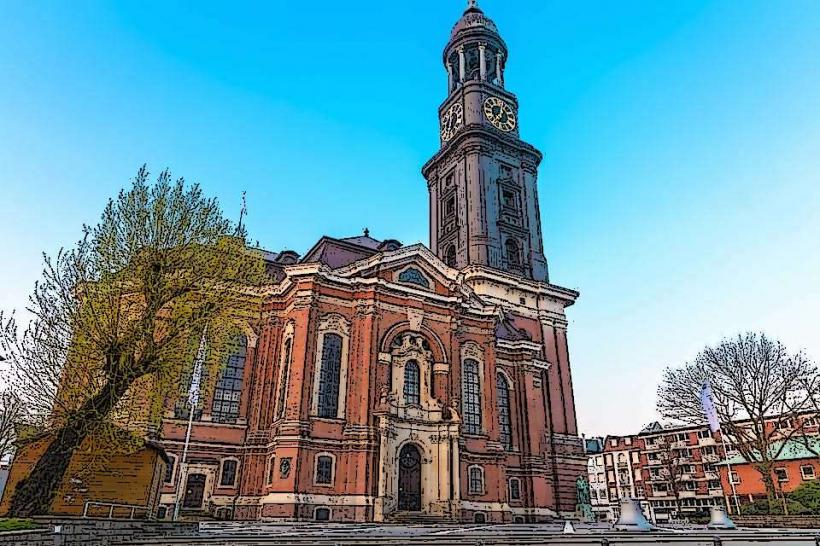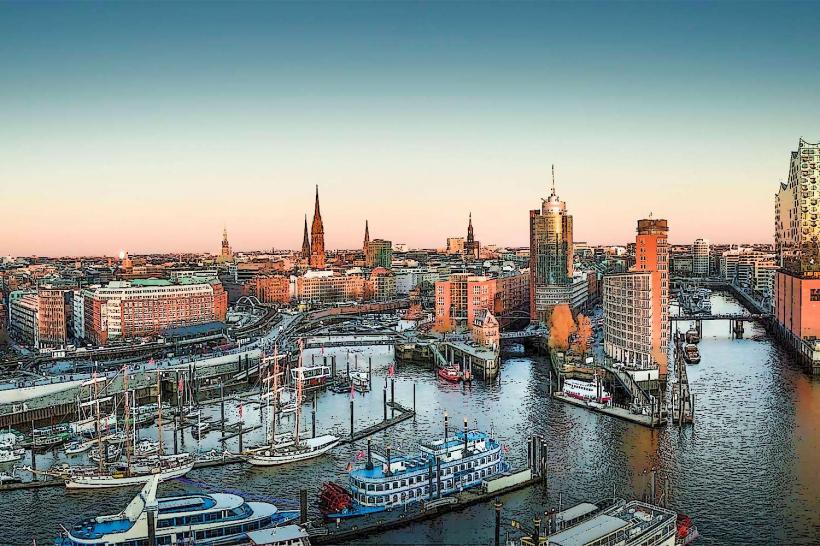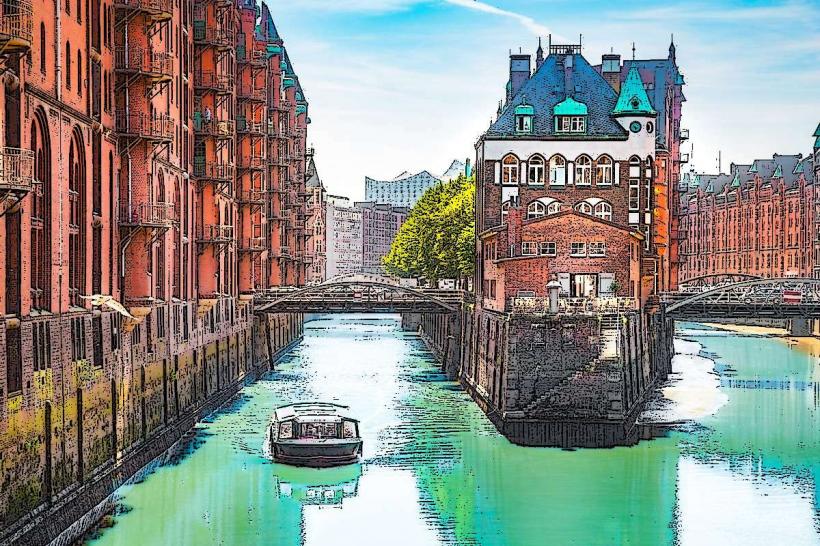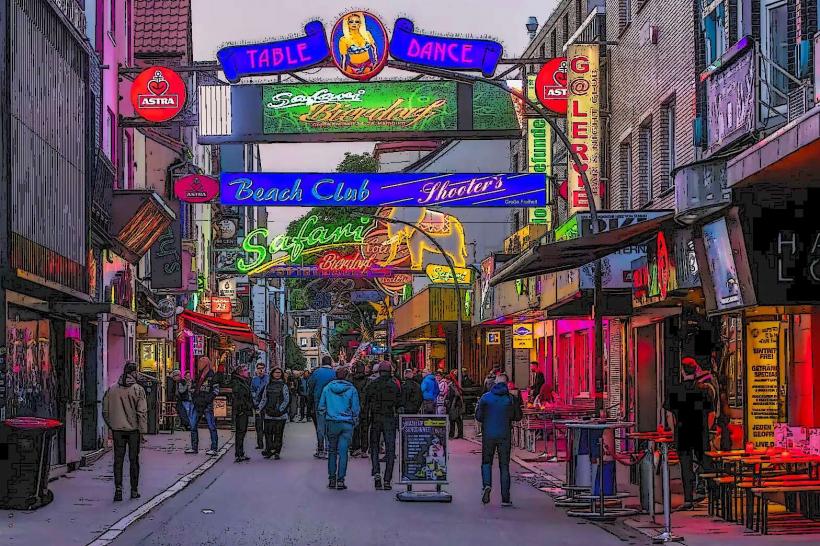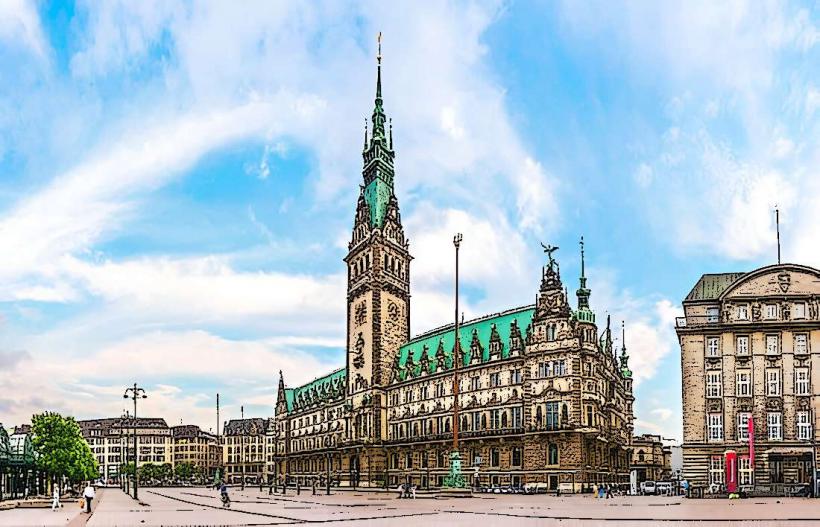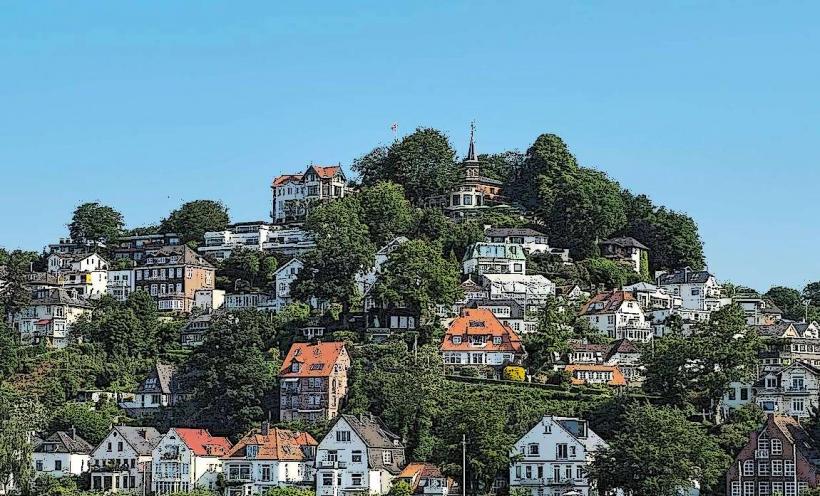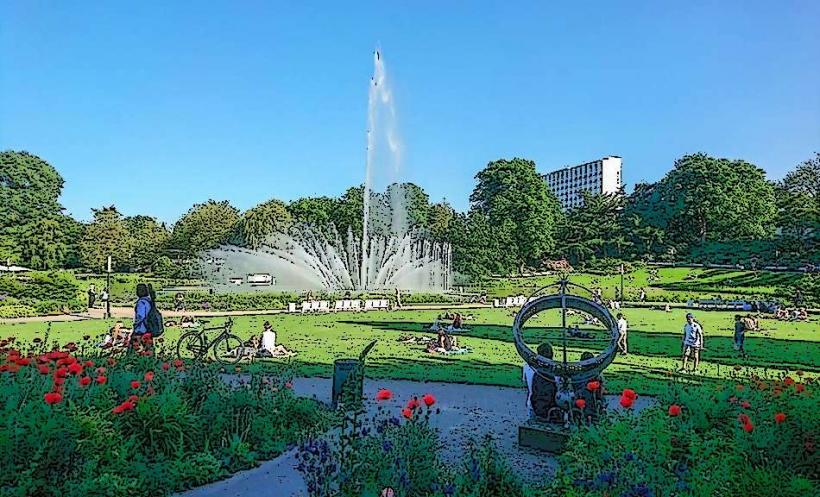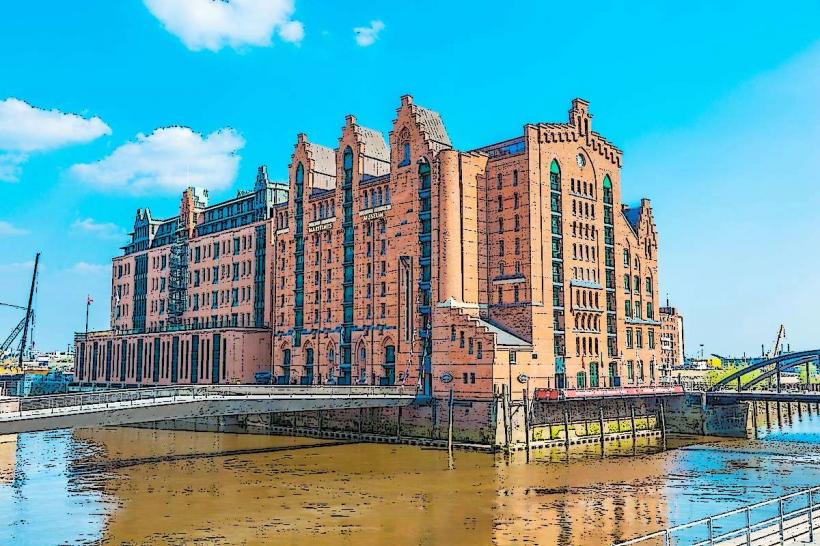Information
City: HamburgCountry: Germany
Continent: Europe
Hamburg, Germany, Europe
Hamburg is a major port city and federal state in northern Germany, situated at the confluence of the River Elbe with the Alster and Bille rivers. It is the second-largest city in Germany and serves as one of the world's most significant maritime logistics hubs.
Visual Characteristics
The urban landscape is defined by dark red-brick architecture (Backsteingotik) and a high density of water. The UNESCO-listed Speicherstadt (warehouse district) features neo-Gothic brick structures on oak log foundations. The skyline is punctuated by the five main Lutheran churches (Hauptkirchen) and the glass-and-brick Elbphilharmonie, which mimics the shape of a wave. Two large man-made lakes, the Binnenalster and Außenalster, occupy the city center, surrounded by white neoclassical villas.
Location & Access Logistics
Hamburg is located 100 kilometers inland from the North Sea. It is served by Hamburg Airport (HAM), 8 kilometers north of the center. Hamburg Hauptbahnhof is a central rail junction for Northern Europe, providing high-speed ICE connections to Berlin (1 hour 45 minutes) and Copenhagen. The HVV transit network operates U-Bahn, S-Bahn, and an extensive ferry system (Hadag) that functions as public transport on the Elbe. Public parking is concentrated in underground garages near the Jungfernstieg and the HafenCity.
Historical & Ecological Origin
Originating as the 9th-century fortress "Hammaburg," the city became a founding member of the Hanseatic League. It has operated as a Free and Hanseatic City for centuries, maintaining political independence. Geologically, it sits on the Elbe glacial valley, characterized by marshlands and moorlands. The city was rebuilt following the Great Fire of 1842 and the extensive Allied bombing in 1943, resulting in a mix of historicist brickwork and post-war functionalism.
Key Highlights & Activities
Miniatur Wunderland, the world's largest model railway, is located within the Speicherstadt. Visitors can access the Elbphilharmonie Plaza for 360-degree views of the harbor and city. The Reeperbahn in the St. Pauli district is the center of nightlife and entertainment history. Boat tours through the historic canals and the modern container terminal are primary activities. The Alter Elbtunnel (1911) allows pedestrians and cyclists to cross under the river to the southern docks.
Infrastructure & Amenities
The city center is equipped with public restrooms near the Rathaus and major transit hubs. 5G cellular coverage is universal. The "StadtRAD" bike-sharing system is highly integrated, with hundreds of stations. Drinking water fountains are maintained by Hamburg Wasser in high-traffic pedestrian zones. Food and retail are concentrated along the Mönckebergstraße and the Alsterhaus, while the weekly Altona Fish Market is a primary site for regional agricultural and maritime commerce.
Best Time to Visit
The climate is temperate oceanic with frequent precipitation. May to September offers the most stable conditions, with temperatures between 17°C and 23°C. Photography in the Speicherstadt is optimal at the "blue hour" when the red-brick buildings are illuminated from below. The "Hafengeburtstag" (Port Anniversary) in May involves massive maritime parades and high pedestrian density.
Facts & Legends
Hamburg has more bridges than any other city in the world, with approximately 2,500 spans-more than London, Amsterdam, and Venice combined. A local historical oddity: the Beatles began their international career playing in the clubs of St. Pauli in the early 1960s. Legend holds that the pirate Klaus Störtebeker was executed here in 1401 and requested that those of his crew he could walk past after being beheaded should be set free.
Nearby Landmarks
Hamburg Rathaus (City Hall): Central hub
Elbphilharmonie: 1.2km South
Speicherstadt: 0.8km South
St. Michael's Church (Michel): 0.6km West
Jungfernstieg: 0.3km North of City Hall

